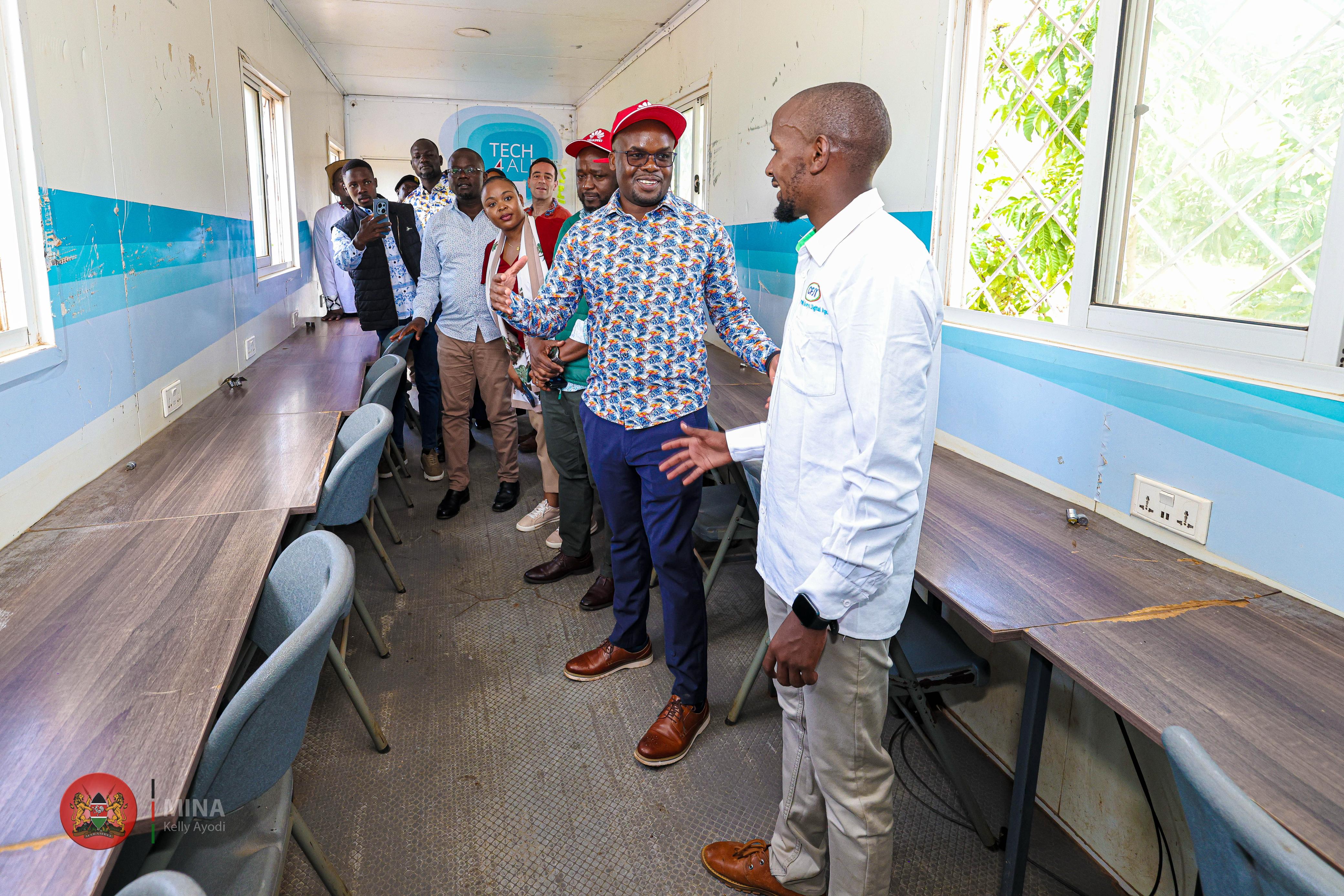
The Kenya Youth Transition Initiative (KYTI) is shaping the
future of young Kenyans by providing them with the skills, mentorship, and
opportunities they need to transition successfully into adulthood, employment,
and leadership.
In a society where youth face challenges ranging from
unemployment to limited access to economic resources, KYTI has emerged as a
transformative force, equipping young people with the tools to navigate these
crucial stages of life, officials said.
Under the guidance of the Principal Secretary, State
Department for Internal Security and National Administration, Dr. Raymond
Omollo, KYTI has made significant strides in empowering the youth through
economic initiatives, leadership training, and community engagement.
The initiative, led by Chairperson Salmon Oyieko, alongside
Secretary Francis Onyango and dedicated members such as Seth Okumu and Edwiner
Okombo, is committed to driving impactful change through mentorship, economic
empowerment, and youth leadership development.
Omollo said KYTI has reached thousands of young people
across Kenya, fostering self-reliance and resilience through targeted programs.
For instance, by focusing on entrepreneurship, KYTI has
provided financial support to youth groups, such as the Sh50,000 cash grant to
the Ratan’ga Senior Boda Boda Youth Group, enabling them to expand their
businesses and improve their livelihoods.
“Such initiatives are not just about financial assistance
but about creating long-term economic stability and ensuring that young people
have access to sustainable income-generating activities.”
“Beyond economic empowerment, KYTI is bridging the
generational gap by fostering dialogue between young people and elders in their
communities,” he said.
Forums such as the recent engagement in Kabonyo Kanyagwal
Ward, Nyando Constituency, brought together over 100 youth and 50 elders to
discuss issues affecting young people, share wisdom, and mentor the next
generation.
He said the exchange of knowledge is invaluable in shaping
responsible, community-driven young leaders who understand the importance of
collaboration, respect for tradition, and the role of mentorship in personal
and professional growth.
“Leadership and civic engagement have also been at the heart
of KYTI’s mission. The initiative is actively preparing young people for
governance, politics, and public service by instilling leadership skills and
civic awareness,” he added.
By mentoring young professionals on ethical leadership and
policy engagement, KYTI is encouraging youth to take an active role in shaping
their communities and participating in national decision-making processes.
Many young people struggle with the transition from
professional careers to political leadership, and KYTI is creating pathways to
help them make informed choices about public service and governance.
Economic inclusion remains one of KYTI’s strongest pillars,
added the PS.
“The initiative believes that empowering a young person
today means empowering a community tomorrow. Through its focus on youth-led
initiatives and startups, KYTI champions self-reliance and sustainable growth,
ensuring that young entrepreneurs have the resources and mentorship to turn
their ideas into thriving businesses.”
A shining example of this is the Kokwanyo Location Youth
Fraternity Group in Homa Bay, which has demonstrated resilience and innovation
by planting and selling fruit tree seedlings.
Their efforts not only generate income but also promote
environmental conservation and food security and reflects KYTI’s commitment to
ensuring that youth-driven enterprises contribute to both individual success
and broader societal development.
The initiative is focused on expanding its impact and
ensuring that more young people have access to economic and leadership opportunities.
Plans are underway to establish mentorship hubs in various
counties, providing a space where youth can receive career guidance and
training, Omollo revealed.
“Strengthening partnerships with both government and private
sector stakeholders will also be key in creating employment opportunities and
fostering innovation-driven enterprises. Additionally, KYTI aims to enhance
youth participation in governance and policy discussions, ensuring that young
voices are represented in decision-making at all levels.”
The initiative is also about building a movement that
transforms Kenya’s socio-economic landscape.
“By equipping youth with the resources, skills, and networks
they need, KYTI is laying the foundation for a more prosperous and self-reliant
generation. The impact of this work will be felt for years to come as empowered
young people take charge of their futures, build businesses, lead communities,
and contribute meaningfully to national development,” he said.
He called on leaders, stakeholders, and communities to come
together to support youth empowerment and create an environment where every
young person can thrive.










